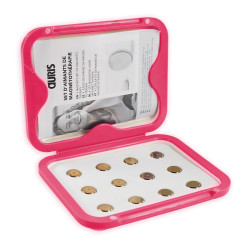 The benefits of quitting smoking at any age, especially after 60
The benefits of quitting smoking at any age, especially after 60
Every November, a national campaign returns to the forefront: Tobacco-Free Month. It's a collective challenge issued to all smokers to help them quit smoking for 30 days. Why 30 days? Because after this milestone, the chances of remaining a non-smoker increase fivefold. But beyond the symbolism, November could well become THE ideal month to turn the page on tobacco. Yes, it's never too late to quit smoking, and the benefits are felt much sooner than you might think!
Smoking and senior health: a risky combination
As we age, our bodies become more vulnerable, and the harmful effects of smoking are even more serious:
Weakened respiratory system: tobacco damages the bronchi and pulmonary alveoli, increasing the risk of chronic bronchitis, emphysema and COPD (chronic obstructive pulmonary disease).
Threatened cardiovascular health: tobacco promotes high blood pressure, atherosclerosis, strokes and heart attacks.
Accelerated osteoporosis: smoking reduces bone density, increasing the risk of fractures in older people.
Cognitive decline: Tobacco may play a role in the progression of memory disorders and neurodegenerative diseases.
Cancer: the risk of lung, throat, bladder and pancreatic cancer is greatly increased.
But there is hope: quitting, even late in life, brings almost immediate benefits.
The benefits of quitting: a new lease of life at any age
Within hours of quitting smoking, the body begins to repair itself:
- 20 minutes after the last cigarette: blood pressure and heart rate begin to normalise.
- 8 hours later: the level of carbon monoxide in the blood decreases, allowing for better oxygenation.
- 48 hours: nerve endings begin to regenerate, and taste and smell improve.
- 2 weeks to 3 months: blood circulation improves, coughing decreases, and shortness of breath is reduced.
- 1 year later: the risk of cardiovascular disease is reduced by half.
- After 5 to 10 years: the risk of lung cancer decreases significantly.
Quitting smoking also leads to:
- A better quality of life on a daily basis: more energy, improved breathing, better quality sleep.
- More radiant skin, which is often damaged by tobacco toxins.
- A reduced risk of drug dependence, particularly on bronchodilators or anxiolytics.
- A longer life expectancy, but also a more active, independent and comfortable life.
But at my age, is it really worth it?
This is a common question. And the answer is a resounding YES!
Even after 60, 70 or even 80, the body has a tremendous capacity for regeneration. Numerous studies show that former smokers live longer and healthier lives than those who continue to smoke.
What's more, the brain also benefits from quitting. Memory, concentration and attention can improve. Not to mention morale: quitting is often associated with a boost in self-esteem and a feeling of regained freedom.
Help to quit: there are gentle, natural solutions
Quitting smoking is not easy. But it is possible, especially with the right support. Here are a few ideas:
- Nicotine replacement products (patches, gum, lozenges) available at pharmacies.
- Psychological support or tobacco cessation coaching, individually or in groups.
- Mobile apps and helplines (such as Tabac Info Service).
- Hypnosis, sophrology, acupuncture, to gently influence the mechanisms of addiction.
- Magnetic therapy, a gentle and complementary approach.
Focus on magnet therapy: a natural ally for quitting
Magnet therapy is based on the use of therapeutic magnets to rebalance the body's magnetic field. When quitting smoking, it can act in several ways:
- Reduction in withdrawal-related anxiety.
- Improved sleep, which is often disturbed in the first few weeks.
- Reduction of nervous tension, headaches and irritability.
Some devices are specially designed for smoking cessation, to be worn on the ear or on acupuncture points, such as Slim & Smoke Auris. With no side effects or addiction, magnet therapy can be a valuable aid for older people who want to quit gently, without stress or medication.
In November... why not choose freedom?
Quitting smoking is a gift you give yourself, but also to your loved ones. It is a powerful gesture that can transform your daily life, your health and your future. No matter your age, every day without tobacco is a victory. And November may be the perfect time to start this new chapter.



